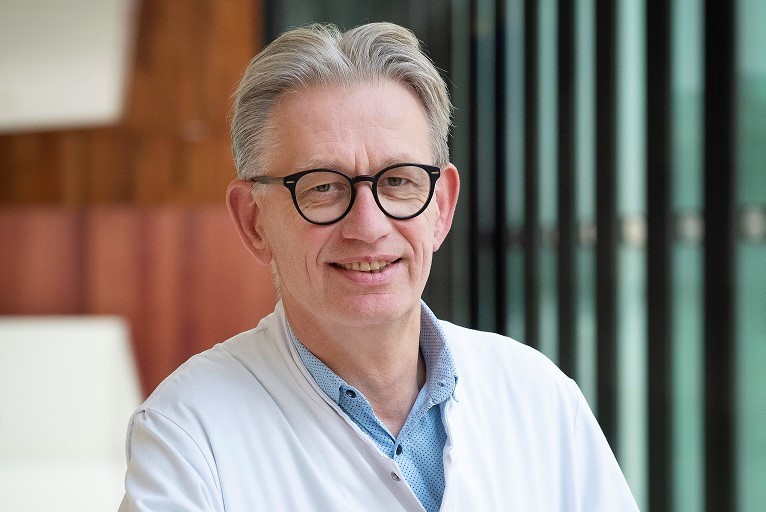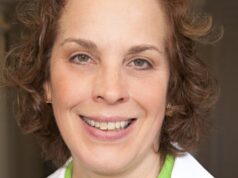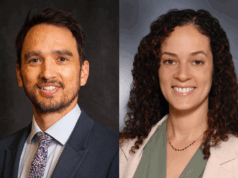
A career in clinical research is perhaps a less formulaic and well-trodden path than the one into medicine itself, typically requiring relatively young and inexperienced clinicians to show initiative, commitment and a great deal of patience. According to Diederik Dippel (Erasmus MC Stroke Centrum, Rotterdam, The Netherlands), lead investigator for MR CLEAN—one of the most impactful clinical trials in the recent history of neurointerventional surgery—the “best thing you can do” initially is embark on a master’s thesis and, after that, a PhD.
Speaking to NeuroNews, he describes his own early forays into clinical research, starting with the daunting set of circumstances he was faced with towards the end of his PhD studies. Having reached the end of the standard period PhD students in The Netherlands are given to complete their thesis, and on the verge of returning to daily clinical practice with much of his project investigating decision analysis still to do, Dippel reluctantly made a difficult choice in the name of furthering scientific comprehension.
“I informed my loved ones I was going to have to work on Sundays,” he recalls, “and I worked on Sundays for at least three years, researching and writing up to complete my thesis and get it published.”
However, while he notes that going above and beyond can be a necessary evil for committed researchers, Dippel is quick to point out this is certainly not something that is ‘expected’ of any PhD student—and those under his guidance are always encouraged and supported to finalise their projects within the allotted timeframe, wherever possible.
Battles, books and questions
In conjuring up several nuggets of wisdom for budding researchers, Dippel refers back to some of the earlier and less successful studies he was involved with long before the MR CLEAN days, including a series of trials investigating how paracetamol’s body temperature-lowering effects might influence stroke outcomes, and another assessing the use of ‘cooling devices’ to protect the brain from focal ischaemia. The former produced “very neutral results”, despite progressing to a large, randomised trial, while the latter was “very hard work” and ultimately found the approach in question was not feasible.
“One of my messages would be to pick your battles, and choose areas where there is real discussion and real benefit to be gained for patients in the long run,” he avers. “Do not do it just because it is interesting—try to find joy in a project that you think will really make a difference.”
Dippel also states that, despite his earlier projects being closer to the margin of stroke research and producing disappointing final results, he learned a lot from them, regarding how to “lay the groundwork” and the need for precision in such trials in particular. “You have to realise that almost all of your trials will be neutral or negative,” he adds. “A really positive trial that shows benefit and changes medical practice is very rare, so you have to have some stamina.”
For residents and trainees wanting to join research groups, he also emphasises the importance of reading up on clinical methodology—citing Clinicals Trials: A Practical Approach by Stuart Pocock, first published in 1983, as an example, and suggesting that aspiring researchers would do well to familiarise themselves with clinical epidemiology books more broadly too. “Many of these books have been around for decades, but they are still the ones that give you a good basis to think about [clinical research],” Dippel notes.
One of my messages would be to pick your battles, and choose areas where there is real discussion and real benefit to be gained for patients in the long run.
Here, he alludes to the central roles writing and authorship play in clinical research—a detail that younger clinicians may not anticipate beforehand. Writing up many thousands of words is unavoidable and constitutes much of the “legwork”, Dippel claims, and the amount of input they have on this front will likely be reflected in the list of authors upon publication. He further notes that younger researchers in The Netherlands are often included as first or second author of their own projects, depending on the amount contributed by other, more experienced peers, but this is unfortunately not so commonplace in every country.
“It can be a little bit boring, sometimes, as there is a lot of that legwork,” Dippel concedes, “but what I like about clinical research especially is that it is so diverse. Patient communication is sometimes forgotten, but it is important, because you have to talk to patients to gain their consent and answer their questions. [Clinical research] also requires abstract thinking, writing, statistical analyses—it is very broad, which is wonderful.”
Another key piece of advice Dippel offers is to ask questions—not only in the context of research, but in clinical practice too, adding: “When you see decisions being made on treatments, or diagnostic procedures, ask yourself: why are we doing this? And you should not be satisfied with just any answer. You have to ask if there is evidence. Often, there is none, and then you have something you can keep in the back of your mind to explore or do something about later on.”
Medical students, residents and other less experienced researchers are typically involved in enrolling or randomising patients in clinical trials. Dippel believes this is a worthwhile pursuit, but also stresses the benefits of reading up on the protocol and reasons behind a given study, as well as attending any and all investigator meetings that are available. He further notes that, even after a larger trial has been published, local/participating investigators should consider how the data may help to answer other questions, and put themselves forward for any resulting sub-studies, as this offers another inroad for connecting with more experienced researchers.
And, perhaps most significantly of all, he encourages fledgling researchers to join in and, again, always ask questions. “Sometimes, they will be hesitant about asking a question because [they think] they may appear stupid but, mostly, when you do not understand something, you are not the only one. So, do not be afraid—I think that is important advice,” Dippel says. “Make yourself known, make yourself available, and stick out from the crowd by asking the right questions and being prepared. This is possible in an environment that aims for equality and collaboration, in our centre, but we also try to accomplish that [in the CONTRAST consortium] by not considering hierarchy and by addressing others by their name, never by their title.”
Importance of younger generations
Many universities offer medical students the opportunity to engage in master’s studies for half of or a whole year. Dippel notes that—in the medical space—these projects tend to be a meta-analysis, systematic review or small clinical study, with the student themself devising its protocol, sourcing the data and writing up the bulk of the report. “Some students really like it—they put all of their efforts in and they are successful,” he conveys. “Others, not so much, but it is a very nice timepoint in your career to find out if you would like to do research.”
Students and early-career clinicians alike also need to be “very careful” to preserve their time without overstretching themselves and creating problems at the clinic, Dippel asserts, adding: “Even writing the introduction and conclusion [of a paper] can take months if the clinic is consuming all of your energy. My experience is that, when you are a full-time doctor in a clinic that is not dedicated to research, you will [find it difficult]. There are lots of doctors that have the mindset of a researcher, and they may have one, two or three days per week for research. That is okay—advisable, even, because you are a better doctor when you do research, and you think more clearly about clinical problems.”
There are lots of doctors that have the mindset of a researcher, and they may have one, two or three days per week for research. That is okay—advisable, even, because you are a better doctor when you do research, and you think more clearly about clinical problems.
He further notes that this goes both ways, as those who focus primarily on research will likely benefit from maintaining some amount of clinical practice alongside this. “But you have to create time for yourself to do it,” he continues. “This is often possible with research grants and having [at least] one day in the week that is your research day—but, otherwise, it will not work, in my opinion. I am in a lucky position, because we have a university clinic, and 50% of my time is spent on clinical work and the other 50% is research, but it can still be difficult to separate the two. In my environment, that is possible, but I know that in some other places it is very hard to say ‘sorry, this is my research day’; they start laughing and tell you to get back to work!”
Dippel describes the involvement of younger generations as a “win-win situation” for clinical research, providing a cheaper alternative to their older, more experienced counterparts while also equipping them with valuable education and practice for future projects. Here, he cites the fact that, after more than a decade as one of the research leads for the MR CLEAN trial, the subsequent MR CLEAN registry and then the CONTRAST consortium (a collaboration evaluating new acute stroke treatments), he is now set to front a national training programme for young, talented stroke researchers in The Netherlands.
Over the next five years, this programme plans to focus on involving postdocs in many sub-studies and cost-effectiveness analyses, giving them more substantial, coordinating roles in the numerous offshoots of the original MR CLEAN trial and the CONTRAST consortium. With Dippel and his colleagues—the “grumpy old men”, as he calls them in jest—taking a step back from these leading roles moving forward, the hope is to give burgeoning researchers increased responsibilities and hone their expertise for the future. And, supported by grants from the Dutch Heart Foundation, the programme is also looking to send young PhD students abroad, for one or two months at a time, enabling them to connect with other research groups and start up their own projects based around existing datasets.
“We are very lucky to have received these grants from the Dutch Heart Foundation, because that allows us to build the infrastructure to support this,” he concludes. “We—my co-lead for many years, Charles Majoie from Amsterdam University [Amsterdam, The Netherlands], and I—really take care that there is involvement of younger persons. I think that is the basis of how we work; if we do not have the younger people there, we are going nowhere, so it is very important.”









